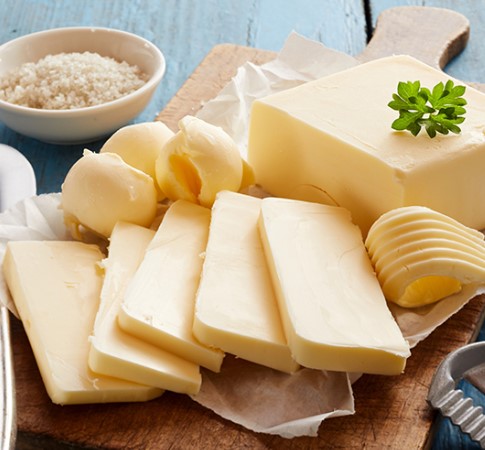Can goats eat bread and what does baking soda have to do with it?

To begin with, bread can indeed be given to goats, and they love it, but it is only a treat and should not replace the main components of the goat's diet, such as hay and grass. Goats are herbivores. On average, adult goats eat up to 1.5 to 2.8 kg of hay per day; lactating goats, accordingly, eat a lot, sometimes up to 3 kg of hay per day.
It is easy to notice that goats willingly eat food that is unusual for them by nature, including table scraps, but unlike pigs, in which food waste is digested and successfully absorbed, goats have a highly specialized stomach designed to feed on roughage and forage feed. Just because goats are willing to snack on leftovers does not mean that these foods are automatically safe for them.
As for bread specifically, with limited portions it should not cause any serious problems.
Goats can eat wheat bread. Wheat bread contains about 7 grams of fiber per 100 grams and wheat starch.
On the one hand, starch is very important for ruminants: it promotes fermentation in the rumen, the digestion of structural carbohydrates and the passage of protein into the small intestine.
On the other hand, since wheat bread and its starch are easily fermented, goats can easily develop rumen acidosis if given too much. The conclusion is simple: keep it in moderation, goats are fed hay, not bread.
Rye bread contains about 56-70% starch and contains 6 grams of dietary fiber per 100 grams. In addition to good fiber and starch content, it has less SUGAR than wheat, hence will be better for the HEALTH of the goats. Excess sugar leads to obesity, so cakes, muffins and all kinds of sweet pastries are in the “goat bath”.
Goats love crackers, and depending on the ingredients, they can be a safe snack. Plain dried bread is safe; various crackers with flavorings and additives can cause stomach upset.
Moldy bread should definitely not be given to goats:bacteria produce mycotoxins. Although goats are more resistant to mycotoxin exposure than horses or some other animals, they can still be seriously harmed. The type, amount, and frequency of mycotoxin exposure influence the severity of toxicosis. Pregnant goats may be more susceptible to certain mycotoxins, causing additional reproductive health symptoms. As you understand, there is no point in risking the health of the goat.
However, bread spread with peanut butter is one of the best ways to train a goat to come to the milking stand. Portion serving - 1-2 slices per day is enough.
If a lot of crackers have accumulated, you can prepare a tasty top dressing from them by mixing them with washed and cut into strips carrots.
Finally, if you really have to, and you decide to give your goats bread from the store for a while, provide them with baking soda. The logic is that baking soda is a rumen buffer. If the rumen pH drops, goats may self-medicate by licking off some baking soda.
Simply offer baking soda to goats (free choice) in a small container the same way you would offer SALT and minerals. There is no need to mix it into the feed. Just let them “self-dose” when they feel the need to.
If your goats are on pasture and not fed grain, they probably won't need baking soda. Goats produce their own bicarbonate when they chew. Twigs, weeds and grass require a lot of chewing. So goats produce a lot of bicarbonate, which helps with digestion when they eat this food. In the absence of grazing, especially when you decide to feed bread, baking soda is an important consideration.
Finally, when feeding goats bread, make sure the animals have access to hay, baking soda, and do not substitute bread for the diet. Goats need hay and other roughage for the proper functioning of their digestive system, especially the rumen. In this sense, it is useful to go not to the grocery store for leftover bread, but to the forest for twig food.
Read together with it:
- В продукции ООО «Мерилен» в Хабаровске обнаружены кишечные палочки и превышение нормПо данным Россельхознадзора, в замороженном «Шашлыке «Кавказском» (дата производства 15.08.2025, годен до 13.11.2025) было найдено 8,010^6 КОЕ/г при норме не более 110^6 КОЕ/г, а в «Фарше по-домашнему» (дата производства 06.08.2025, годен до 04.11.2025) зафиксировано 9,310^6 КОЕ/г при норме не более 51......
- Belarusian exports of dry milk products to Myanmar quadrupled in the first half of the year.Photo by the Ministry of Agriculture and Food, September 30, MINSK . The first meeting of the Belarusian-Myanmar Joint Working Group on Cooperation in Agriculture and Food was held at the Belarusian Ministry of Agriculture and Food, the ministry told BelTA. The meeting was attended by Deputy Minister Ivan Smilgin, heads of the Ministry's departments, Ambassador Extraordinary and Plenipotentiary of...
- The discovery of salmonella in Troekurovo products resulted in a fine for the manufacturer.According to the TELEGRAM channel "SHOT PROVERKA," information about the contamination came to light after specialists from the Omsk Region Office of Rospotrebnadzor conducted tests at a Magnit store in the Novosibirsk Region. The six-month investigation culminated in a COURT case, with the manufacturer, JSC PRODO Sibirskaya Poultry Farm , being fined 35......
- Argentina: 0% agricultural taxes: How the temporary waiver of export duties on grain and meat will workThe abolition of income taxes on more than 70 types of agricultural products, officially announced today by the national government, directly impacts Argentine grain, MEAT, and offal exports . The decree, published Monday in the Official Gazette, sets the EXPORT tax rate at 0% until October 31, 2025, or until the exhaustion of the $7 billion quota for declarations of sales abroad (DJVE), whichever...



























































